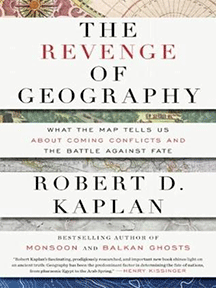By Fred H. Lawson
Geopolitics constituted a lively field of academic inquiry and diplomatic discourse at the turn of the twentieth century. Scholars and policy-makers alike debated the merits of Halford Mackinder’s thesis that global predominance entails control of the Heartland of central Eurasia, and his proposal to contain Russia by creating a band of buffer states stretching from Poland through the Caucasus to Tibet. By contrast, Alfred Thayer Mahan asserted that it is command of the seas that confers world dominance. Mahan went on to argue that naval forces are inherently less likely than land armies to lay a foundation for tyranny. Reliance on sea power therefore suits the character and interests of any republic that undertakes imperial expansion, whether ancient Athens, medieval Venice, or late nineteenth-century America.
Such theories have elicited less enthusiasm in the United States than they have elsewhere, and American proponents of geopolitics from Nicholas Spykman and Robert Strausz-Hupe to Saul Cohen and Jakub Grygiel tend to get relegated to the fringes of intellectual and political life, perpetually calling on liberals and other idealists to change their thinking. More influential both in the academy and in the halls of government have been advocates of power politics, who give greater weight to ideological and technological factors in explaining international affairs. As a corrective to pervasive U.S. liberalism, the writings of Hans Morgenthau have had a markedly stronger influence than those of Mackinder, Mahan, and Spykman.
Robert Kaplan steps forward to revive geopolitics for a new century, and for a strategic situation that poses unprecedented puzzles for policy-makers in Washington. Control of the Heartland remains pivotal, whether the struggle ends up pitting the U.S. against Russia or against China, or instead draws Moscow and Beijing into renewed conflict with one another. All three face a powerful rival in India, whose position along the southern edge of the Heartland accords it leverage over the sea lanes that link the oil-producing Persian Gulf to the contested waters of the South China Sea. On a somewhat smaller scale, Iran finds itself in a similarly advantageous location between the Gulf and the Caspian Sea. And just as it did for British and Russian statespeople throughout the nineteenth century, Afghanistan occupies a unique place in world affairs, which emits to the unwary the Sirens’ song of direct intervention.
Is geopolitics a better guide to foreign policy than other theories, most notably the power politics championed by Morgenthau? Kaplan cogently recapitulates the main points advanced by Mackinder, Mahan, and Spykman, along with the quite different analytical framework devised by Marshall Hodgson to account for developments across the Islamic world. But when these abstract concepts are applied to concrete cases, they end up so heavily diluted by historical, cultural or power dynamics that one of two things happens: Either the distinctive insights that might be gained from geopolitics vanish or the analysis degenerates into a just-so story. Kaplan observes, for instance, that “because of the tradition of small, independent states arising out of the Thirty Years’ War in the seventeenth century…there is no one great pressure cooker of a capital [in today’s Germany], but rather a series of smaller ones that manage [sic] to survive even in an era of a reborn Berlin.” History, not geography, shapes politics in the former Soviet space as well: “What emerged in Central Asia [after 1991], therefore, was less ethnic nationalism than ‘Sovietism’ as a technique of control and power.”
Geopolitics per se inspires less compelling observations. “Spykman noted that throughout history states have engaged in ‘circumferential and transmarine expansion’ to gain control of adjacent seas: Greece sought to control the Aegean, Rome the Mediterranean, the United States the Caribbean, and now, according to this logic, China the South China Sea.” In the same vein, Kaplan remarks that “the present Indian state still does not conform to the borders of the subcontinent, and that is the heart of its [strategic] dilemma: for Pakistan, Bangladesh, and to a lesser extent Nepal also lie within the subcontinent, and pose significant security threats to India, robbing India of vital political energy that it would otherwise harness for power projection throughout much of Eurasia.” Such overly broad, unfalsifiable statements are the reason why geopolitics fell out of fashion in the 1960s.
Fred H. Lawson (ΦBK, Indiana University, 1973) is the Lynn T. White, Jr. Professor of Government at Mills College and a resident member of the Zeta of California chapter of Phi Beta Kappa.




